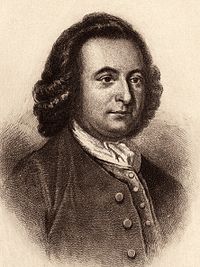June 12, 1776 - a date all Americans should know
because on that date, the Virginia Convention, which among other things had directed its delegats to Philadelphia to declare the colonies free of Britain and which had drafted a constitution for what would be the newly independent state, adopted the Virginia Declaration of Rights, largely drafted by George Mason, who later as a delegate to the Constitutional Convention would refuse to sign the document because it lacked a bill of rights protecting the people.
One can read the entire text of the document in several places, including HERE.
There are 16 "sections" listing the rights to be protected. Below the fold I will examine doue, one of which explains to me why the the Supreme Court was wrong in the Heller decision, the other three of which are specifically relevant to the immediate times in which we find ourselves.
It is worth noting that many of the rights can clearly be traced back to other documents, perhaps as far back as the Magna Carta in the case of the right of trial by a jury of one's peers found in Section 8, and in many cases either in the Petition of Right of 1628 and/or the English Bill of Rights. In other words, these were assumed - not only before Jefferson but well before the disputes with England stemming from what we call the French and Indian War - to be the rights of all Englishmen.
Let me first note the beginning of the document:
One can read the entire text of the document in several places, including HERE.
There are 16 "sections" listing the rights to be protected. Below the fold I will examine doue, one of which explains to me why the the Supreme Court was wrong in the Heller decision, the other three of which are specifically relevant to the immediate times in which we find ourselves.
It is worth noting that many of the rights can clearly be traced back to other documents, perhaps as far back as the Magna Carta in the case of the right of trial by a jury of one's peers found in Section 8, and in many cases either in the Petition of Right of 1628 and/or the English Bill of Rights. In other words, these were assumed - not only before Jefferson but well before the disputes with England stemming from what we call the French and Indian War - to be the rights of all Englishmen.
Let me first note the beginning of the document:
A declaration of rights made by the representatives of the good people of Virginia, assembled in full and free convention; which rights do pertain to them and their posterity, as the basis and foundation of government.Jefferson did not write in a vacuum that the purpose of government was to preserve rights. Nor was this original to Mason, who could easily find the notion in the work of John Locke. This idea of the purpose of government is also relevant in the times in which we find ourselves, and I will return to it in time.

